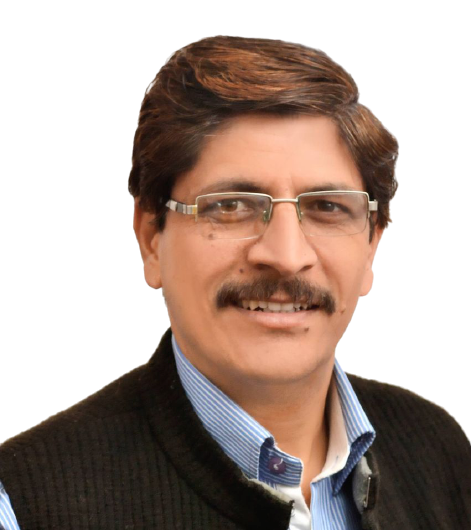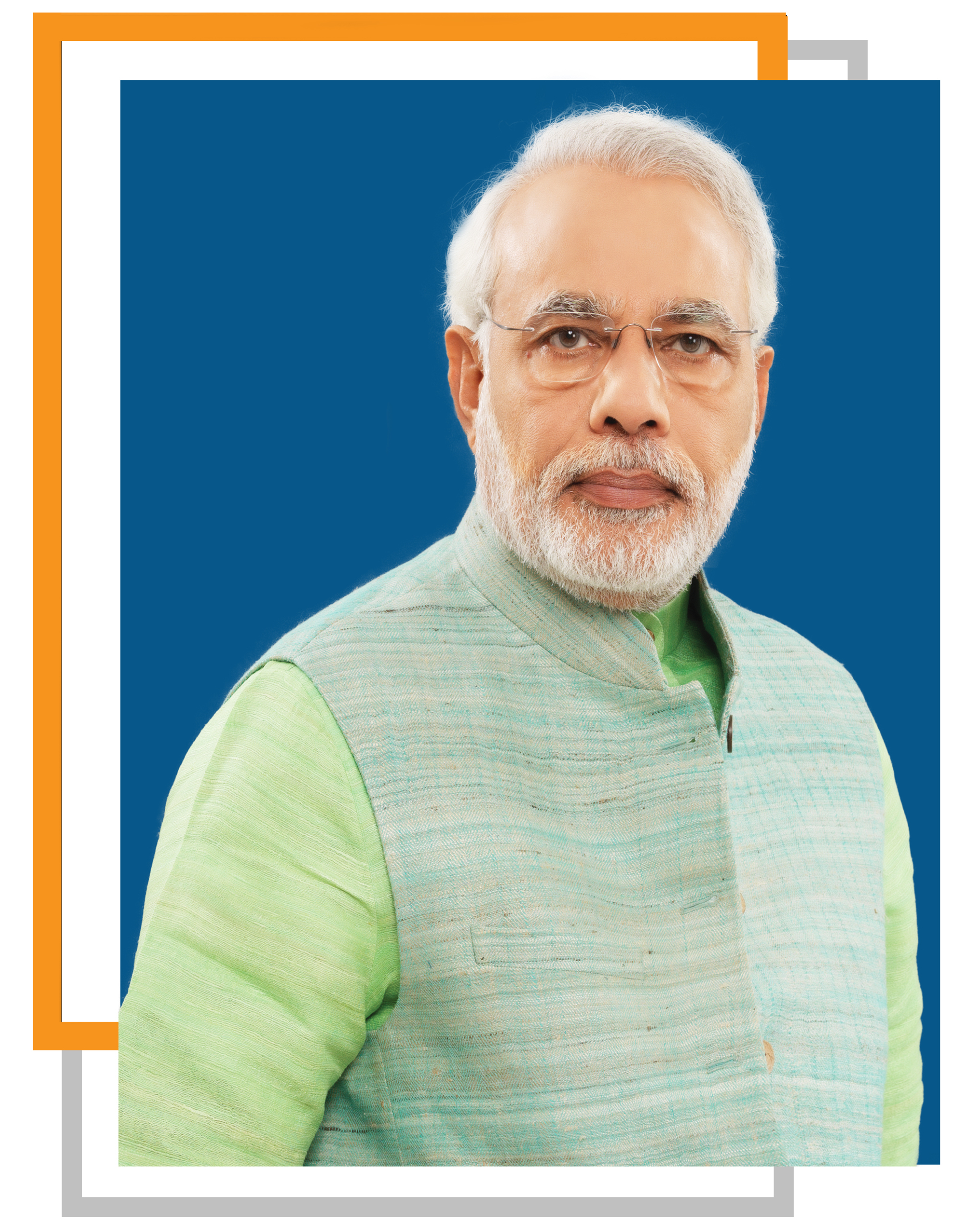
NARENDRA MODI JI
THE COMMON MAN WHO BECAME THE PRIME MINISTER OF INDIA – NARENDRA MODI
Born on September 17th , 1950 at Vadnagar, a small town in Mehsana district of North Gujarat, Shri Narendra Modi grew up in a culture that instilled in him the values of generosity, benevolence and social service. During the India-Pak war in the mid sixties, even as a young boy, he volunteered to serve the soldiers in transit at railway stations. In 1967, he served the flood affected people of Gujarat. Endowed with excellent organizational capability and a rich insight into human psychology, he served in Akhil Bharatiya Vidyarthi Parishad (ABVP) and played a prominent role in various socio-political movements in Gujarat.
Right from his childhood days he was confronted with many odds and obstacles, but he transformed challenges into opportunities by sheer strength of character and courage. Particularly when he joined college and University for higher education, his path was beset with tough struggles. But in the battle of life he has always been a fighter, a true soldier. Having put his step forward he never looked back. He refused to drop out or be defeated. It was this commitment which enabled him to complete his post graduation in political science. He started with the Rashtriya Swayamsevak Sangh (RSS), a socio-cultural organization with a focus on social and cultural development of India and imbibed the spirit of selflessness, social responsibility, dedication and nationalism.
While serving in the RSS, Shri Narendra Modi played several important roles on various occasions including the 1974 Navnirman anti-corruption agitation and the harrowing 19-month (June 1975 to January 1977) long Emergency when the fundamental rights of Indian citizens were strangled. Modi kept the spirit of democracy alive by going underground for the entire period and fighting a spirited battle against the fascist ways of the then central government.
After joining the RSS, Amit Bhai worked for the student’s wing of the RSS – the Akhil Bharatiya Vidyarthi Parishad for over four years. It was during this period that BJP emerged as the political arm of RSS and Amit Bhai became a member of the party in 1984-85. His first assignment was that of a poll agent at Ahmedabad’s Naranpura ward, followed by secretaryship of the Naranpura ward. Successful completion of these missions earned him the higher responsibilities as National treasurer of BJYM and then as the State secretary and State Vice-President of Gujarat BJP. In these roles, he actively campaigned to expand the base of the young political party.
He entered mainstream politics in 1987 by joining the BJP. Just within a year, he was elevated to the level of General Secretary of the Gujarat unit. By that time he had already acquired a reputation for being a highly efficient organizer. He took up the challenging task of energizing the party cadres in right earnest. The party started gaining political mileage and formed a coalition government at the centre in April 1990. This partnership fell apart within a few months, but the BJP came to power with a two-thirds majority on its own in Gujarat in 1995. Since then, the BJP has been governing Gujarat.
Between 1988 and 1995, Narendra Modi was recognized as a master strategist who had successfully gained the necessary groundwork for making the Gujarat BJP the ruling party of the state. During this period, Shri Modi was entrusted with the responsibility of organizing two crucial national events, the Somnath to Ayodhya Rath Yatra (a very long march) of Shri L.K. Advani and a similar march from Kanyakumari (the southernmost part of India) to Kashmir in the North.
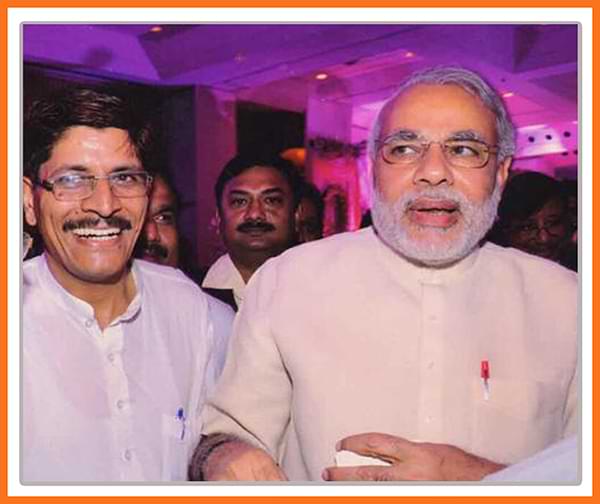
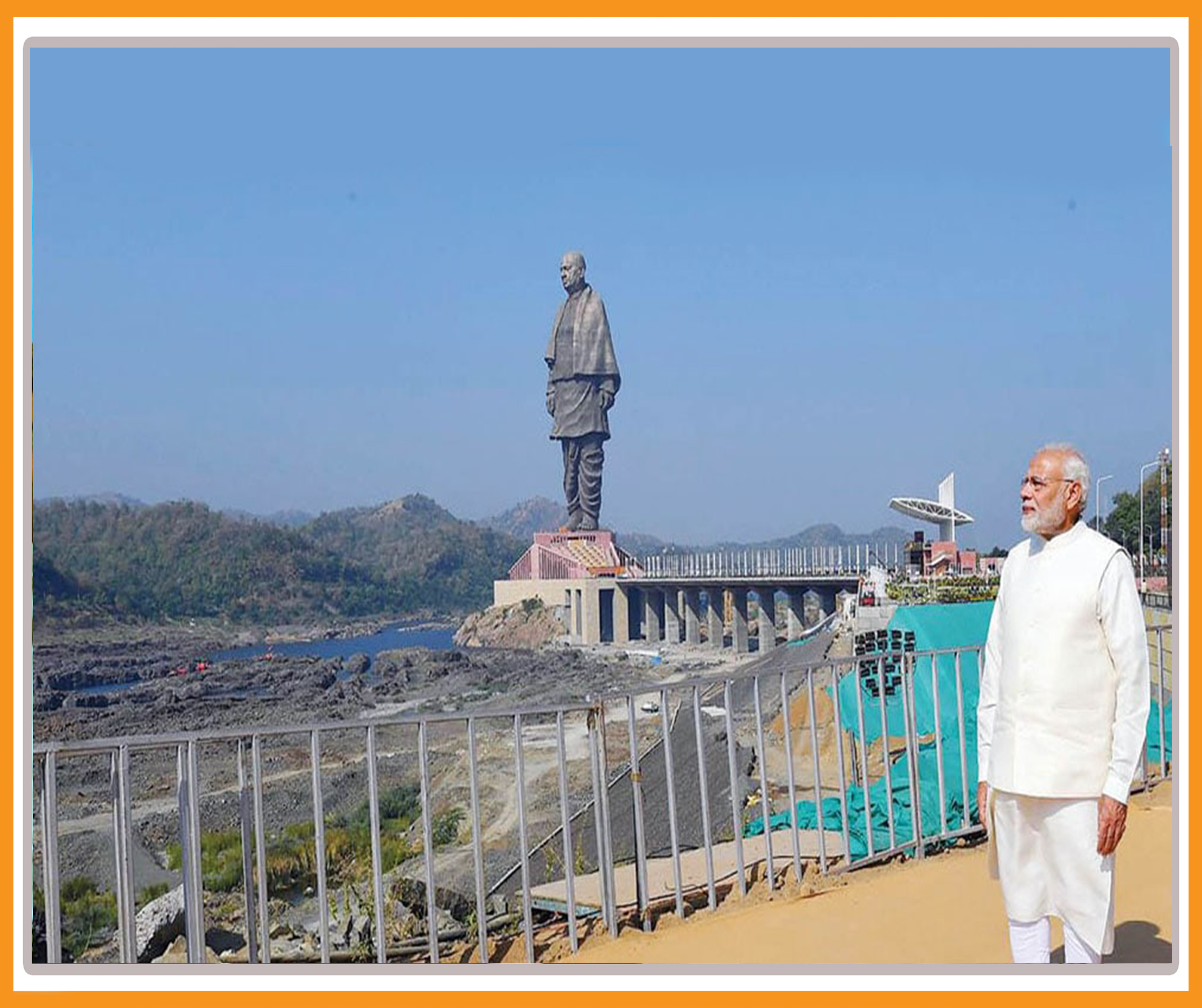
In 1995, he was appointed the National Secretary of the party and given the charge of five major states in India – a rare distinction for a young leader. In 1998, he was promoted as the General Secretary (Organization), a post he held until October 2001, when he was chosen to be the Chief Minister of Gujarat, one of the most prosperous and progressive states of India. During his stint at the national level, Shri Narendra Modi was given the responsibility to oversee the affairs of several state level units, including the sensitive and crucial state of Jammu and Kashmir and the equally sensitive north-eastern states. He was responsible for revamping the party organization in several states. While working at the national level, Shri Narendra Modi emerged as an important spokesman for the party and played a key role on several important occasions.
During this period, he travelled extensively across the world and interacted with eminent leaders of several countries. These experiences not only helped him develop a global perspective but also intensified his passion to serve India and lead it towards the socio-economic.
In October 2001, he was called upon by the party to lead the Government in Gujarat. When Shri Modi ‘s government was sworn in on October 7, 2001, the economy of Gujarat was reeling under the adverse effects of several natural calamities, including a massive earthquake in January 2001. However Shri Narendra Modi, a master strategist, who was enriched by national and international exposure and experience, decided to take the bull by its horns.
The biggest challenge that he had to face, when he took over as the Chief Minister, was the reconstruction and rehabilitation of the areas affected by the massive earthquake of January 2001. Bhuj was a city of rubble and thousands of people were living in temporary shelters without any basic infrastructure. Today Bhuj is proof of how Shri Narendra Modi has turned adversity into an opportunity for holistic development.
Even when the reconstruction and rehabilitation was going on, Shri Narendra Modi did not lose sight of the bigger picture. Gujarat had always focused on industrial growth. Shri Narendra Modi decided to correct the imbalance by focusing appropriately on social sectors for an integrated socio-economic growth. He conceived the Panchamrut Yojana – a five-pronged strategy for an integrated development of the state.
Under his leadership, Gujarat is witnessing massive transformation in several sectors including education, agriculture, healthcare and several others. He developed a clear vision of his own for the future of the state, launched policy-driven reform programmes, reoriented government’s administrative structure and successfully put Gujarat on the road to prosperity. His intentions and capacity were noticed within the first 100 days of his coming to power. Little wonder that these skills coupled with his administrative acumen, clear vision and integrity of character translated into a landslide victory in the December 2002 general elections and the Modi government was voted back to power with a massive majority of 128 seats in a house of 182. The spectacular performance continued in 2007 when in yet another election Shri Modi led the BJP to a record win.
Widely regarded as a youthful and energetic mass leader with innovative thoughts, Shri Narendra Modi has successfully communicated his vision to the people of Gujarat and has been able to impart faith, trust and hope among more than 6 crore people of Gujarat. His outstanding memory of addressing lacs of people, even common men, by their first name has made him the darling of the masses. His immense respect for spiritual leaders has helped build bridges across religions. A wide cross-section of the people of Gujarat, cutting across income groups, religions and even political affiliations, continue to adore Shri Narendra Modi as an able and visionary leader who is transparently and convincingly uplifting the quality of their lives. A skilled orator and a deft negotiator, Shri Modi has earned the love of people from villages and cities alike. His following encompasses people belonging to every faith and religion and every economic section of society.
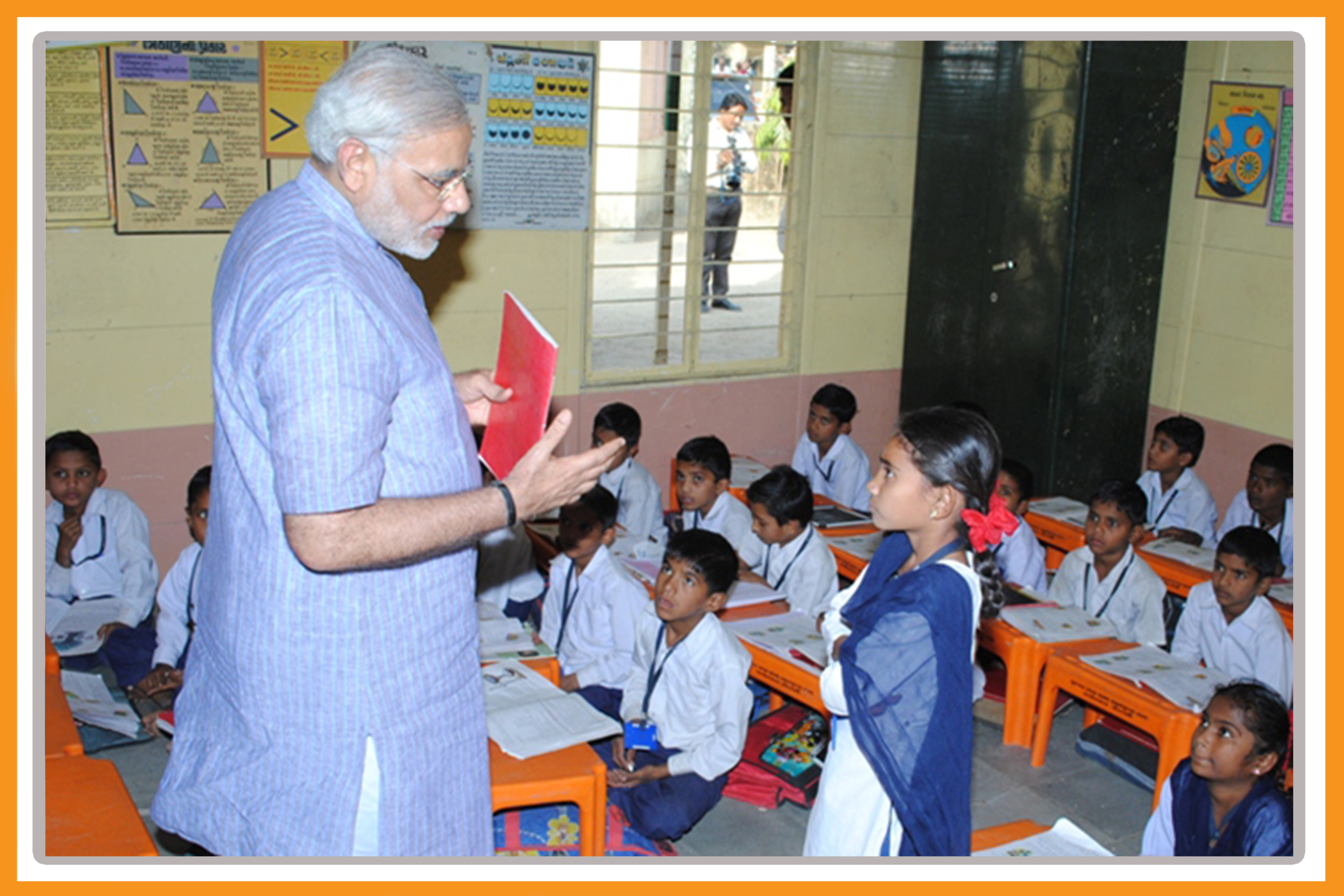
It is under his able leadership that Gujarat has bagged several awards and accolades from all over the world – including UN Sasakawa Award for disaster reduction, Commonwealth Association for Public Administration and Management (CAPAM) award for innovations in governance, UNESCO award, CSI award for e-Governance etc. The very fact that Shri Narendra Modi has been ranked as the number one Chief Minister by the public for three consecutive years speaks volumes for his achievements.
His masterstroke of putting Gujarat on the global map essentially is ongoing campaign called the Vibrant Gujarat that truly transforms Gujarat into one of the most preferred investment destinations. The 2013 Vibrant Gujarat Summit drew participation from over 120 nations of the world, a commendable feat in itself.
If you have any suggestion or query contact us ?
